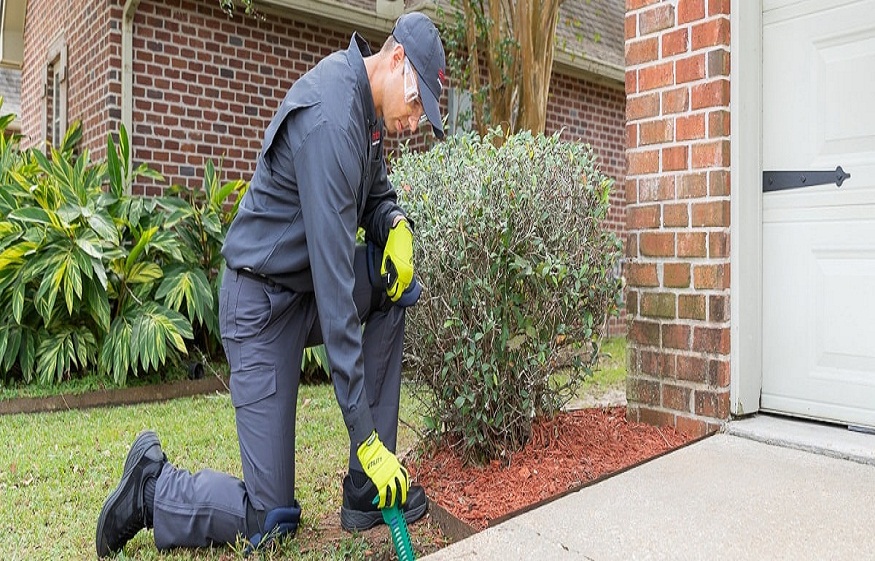Best Practices in Pest Control for Apartment Dwellers of Philadelphia
There are advantages to apartment living, especially in the city: walking distance to work, trendy cultural scenes, and historical neighborhoods. But despite all of the perks, apartment living has its own set of drawbacks, and one of the most common complaints is poor pest control. With walls in common, small living spaces and often aging infrastructure, pests like cockroaches, rodents, bedbugs and ants can easily move from one apartment or condo unit to another, quickly turning a small problem into a building-wide issue as explained by Presto Pest Control. Happily there are measures you can take to be proactive and keep pests away from your apartment.
Keep It Clean and Clear
Hygiene is your first line of pest control. Cracks in the walls or crumbs, spills, and clutter are inviting to bugs and rodents. Make it a habit to:
- Wipe down countertops daily.
- Sweep or vacuum floors on a regular basis, particularly in the kitchen and dining area.
- Don’t leave dirty dishes in the sink overnight.
- Keep dry goods in airtight containers, not open boxes or bags.
Seal Entry Points
In later apartments, small cracks, crevices and gaps in construction that was not sealed correctly can provide a way for pests to enter. Inspect your unit for:
- Cracks between windows and doors.
- Cracks in the baseboards or walls.
- Gaps around pipes under sinks or behind appliances.
Seal any visible gaps with caulk or weather-stripping. Worn brick and wood in older buildings around Philadelphia can create lots of opportunities for pests to find their way inside; contact your landlord or maintenance team to raise structural concerns.
The Art of Trash and Recycling
Nothing brings pests faster than overflow or inadequately sealed trash bins. Use lidded bins and empty them often — especially food waste. If there’s a shared trash room or trash chute in your building, be certain to bag items well and dispose of them properly. Rinse the containers that have held food before putting them into recycling, so you don’t leave sticky residues to attract ants or fruit flies.
Check for Moisture Problems
Humidity in the summer and old apartment buildings in Philadelphia can cause moisture to accumulate in kitchens, bathrooms or basements. Pests such as cockroaches, silverfish and rodents love moist environments. Check for:
- Leaky pipes or faucets.
- Condensation around windows.
- Cabinets that are wet or have water stains.
Use dehumidifiers as needed, and report any water leaks to your landlord right away. If you address moisture issues as soon as possible, your apartment won’t be as inviting to pests.
Examine Used Furniture and Deliveries
The urban lifestyle is rife with shared furniture or secondhand finds — just be careful. It’s easy for bed bugs and other pests to hitchhike into your home. Check all second-hand goods for signs of infestation before you take them into the house. If you get deliveries or packages often, discard cardboard boxes immediately and examine for pests before putting on furniture or floors.
Be a Good Neighbor
Pest management works best as a team effort. If you do see pests in your apartment, notify your building management at once. And you can ask your neighbors to report problems too. If you do one unit and not the others, you still have the problem. Plenty of structures in Philadelphia contract with professional pest control companies for routine check-ups—participate and show up for treatments on a regular basis.
With its bustling urban culture, Philadelphia is an exciting place to live in an apartment — but that also means you need to be especially diligent about pest control. But, by keeping your apartment clean, sealing any openings, and collaborating with your building’s management and fellow tenants to identify and close off pests’ pathways to and from your home, you’ll be able to mitigate the risk and rest easy in a more comfortable (if not completely pest-free) environment. The primary factor is consistency combined with good daily habits so when pests do come, you have the artillery to knock them out before they take hold.


Leave a Reply
You must be logged in to post a comment.